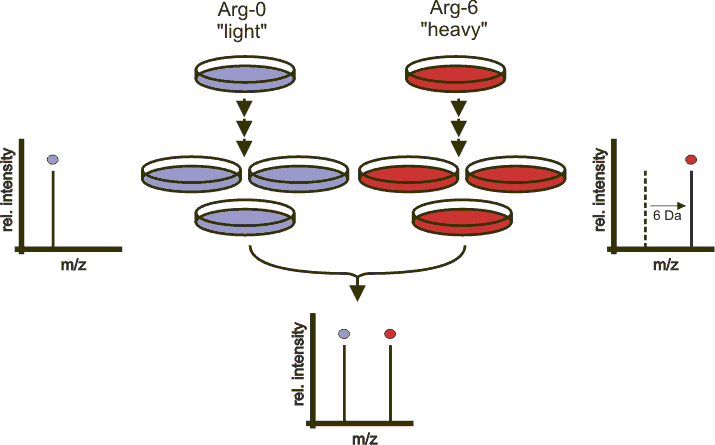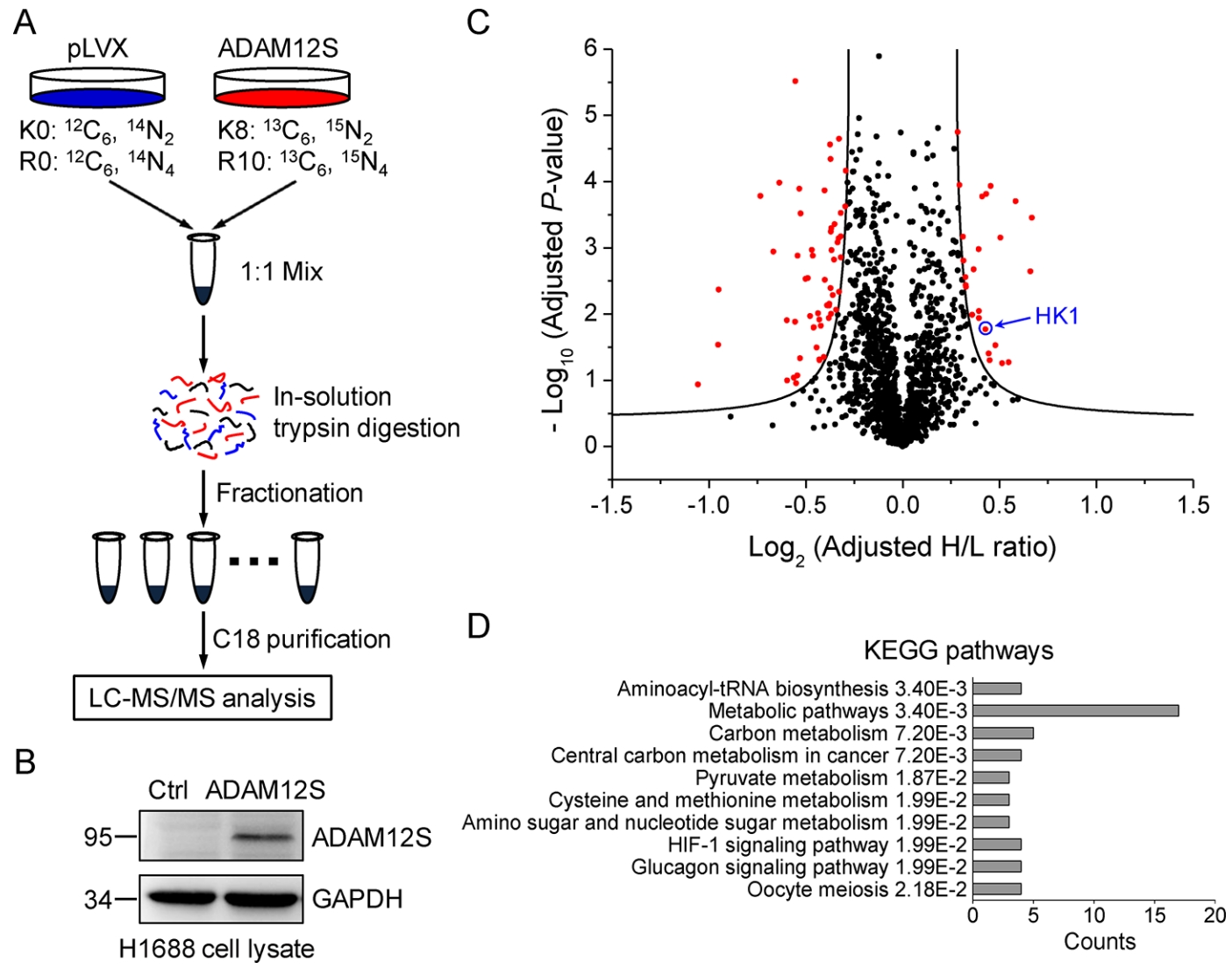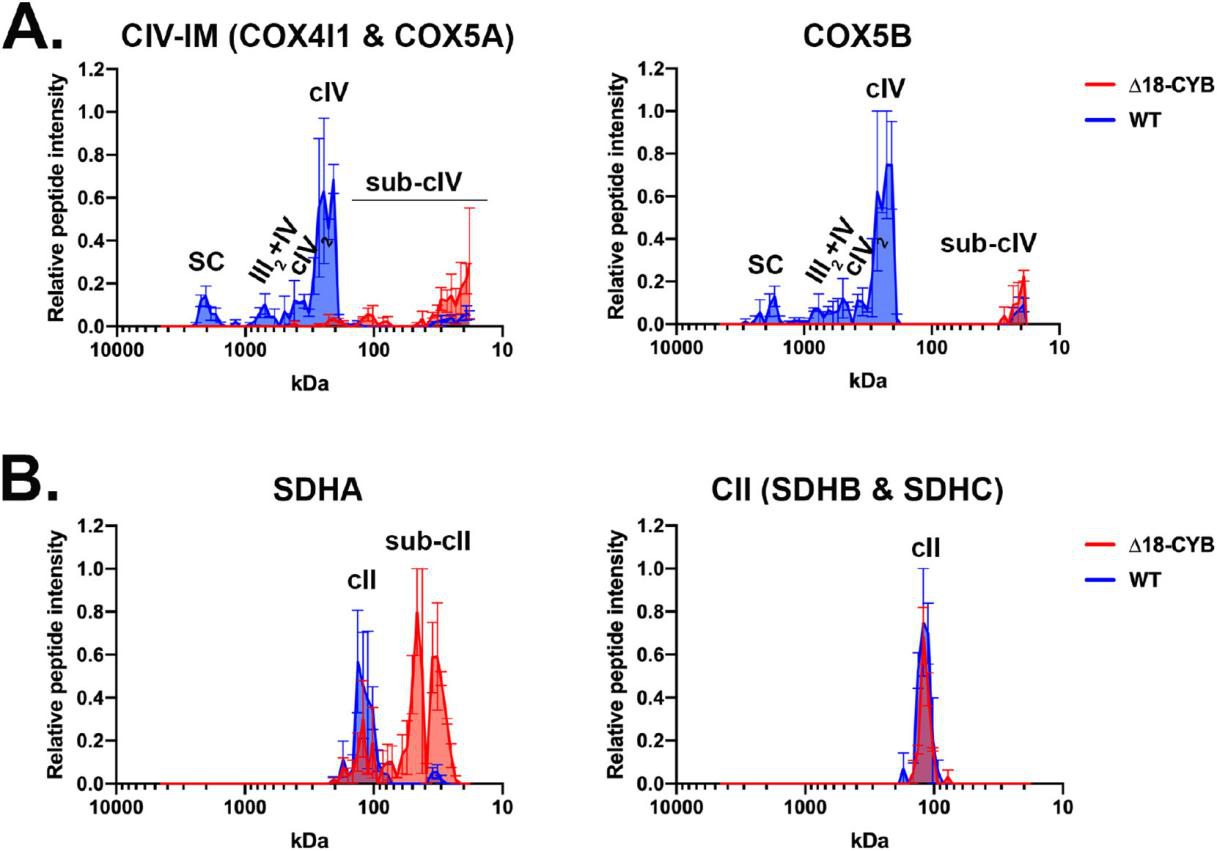SILAC Labeling Service
- Low-complexity samples: Gel spots or bands, approximately 1-2 cm in length.
- Medium-complexity samples: Protein mixtures, including column-purified samples.
- Moderate-to-high complexity samples: Protein mixtures such as IP-derived samples, secreted proteomes, or subcellular organelles (e.g., mitochondria, endoplasmic reticulum, lysosomes).
- High-complexity samples: Whole cell lysates, tissues.
Quantitative analysis is pivotal in proteomics research for uncovering dynamic cellular changes and elucidating protein regulatory mechanisms. SILAC labeling is a powerful tool in this field, renowned for its unbiased and high-precision quantification. At MtoZ Biolabs, we integrate SILAC labeling technology into a comprehensive service pipeline, spanning experimental design to advanced mass spectrometry analysis. Our SILAC labeling service empowers researchers to investigate protein expression dynamics and regulatory networks with unparalleled accuracy, providing essential data for foundational research, disease mechanism studies, and pharmaceutical development.
Technical Principles
SILAC labeling utilizes cellular metabolism to integrate stable isotope-labeled amino acids directly into the proteome, creating an in vivo labeling system with exceptional precision. Two cell groups are cultured under identical conditions, one with natural amino acids (light) and the other with stable isotope-labeled amino acids (heavy). Since labeled amino acids are chemically indistinguishable from their natural counterparts, they are seamlessly incorporated into newly synthesized proteins.
After 5–6 generations of cell culture, labeled amino acids completely replace natural amino acids, ensuring full proteome labeling. The resulting labeled and unlabeled proteins differ only in molecular weight, while retaining identical chemical properties, biological functions, and metabolic states. The two cell groups are then combined, proteins extracted, and peptides generated via enzymatic digestion. High-resolution LC-MS/MS analysis separates the Light and Heavy peptides into distinct isotope peaks. Comparing their intensities yields precise calculations of relative protein abundance under different experimental conditions.

Technical Advantages
1. High Precision and Reproducibility
SILAC labeling achieves stable isotope integration directly within cells, eliminating random errors associated with chemical labeling. Combined with high-resolution mass spectrometry, this method provides sub-percentage precision in relative quantification. At MtoZ Biolabs, our optimized and validated workflows ensure exceptional data consistency, offering a robust foundation for scientific exploration.
2. Non-Invasive Labeling Preserving Native Protein States
Stable isotope-labeled lysine (Lys) and arginine (Arg) are chemically and biologically identical to their natural counterparts, ensuring no disruption to protein structure, function, or activity. MtoZ Biolabs employs carefully optimized SILAC labeling conditions to maintain cells in a near-physiological state, enabling downstream functional experiments to yield reliable and biologically relevant insights.
3. Broad Compatibility Across Diverse Cell Types
SILAC labeling is adaptable to a wide range of mammalian cell lines, including both adherent and suspension cells. MtoZ Biolabs offers efficient labeling workflows for rapidly proliferating cells like HEK293 and HeLa, as well as tailored strategies for low-metabolism or specialized cells, such as primary cells, ensuring high-quality outcomes for various research needs.
4. Flexible Multi-Condition Comparative Analysis
By incorporating light, medium, and heavy labeling strategies, SILAC labeling supports multi-condition studies, including drug concentration gradients, time-course analyses, and complex experimental setups. MtoZ Biolabs' experienced team designs custom experiments using up to three labeling combinations, enabling precise quantification across diverse experimental designs.
5. Verified High-Efficiency Labeling
To ensure data reliability, MtoZ Biolabs employs advanced mass spectrometry platforms such as the Thermo Fisher Orbitrap Fusion Lumos to validate labeling efficiency. With labeling efficiencies exceeding 95%, we provide detailed reports and clear isotope peak profiles, minimizing variability and ensuring high-quality input for downstream analyses.
Sample Submission Suggestions
Our SILAC labeling service provides a robust and precise approach for quantitative proteomics, enabling accurate identification and comparison of protein expression across various conditions. To ensure optimal results, it is crucial to prepare and submit samples that align with the complexity requirements specified below.
For more specific sample submission requirements, please consult our technical team.
Case Study
Case 1
SILAC labeling was used to investigate the regulatory role of ADAM12S in protein expression changes in small cell lung cancer. The findings revealed that ADAM12S promotes cancer cell proliferation, migration, and invasion by upregulating hexokinase 1.

Duan, Q. et al. J. Proteome Res. 2019.
Case 2
SILAC labeling was applied to quantify protein complex alterations associated with respiratory chain assembly defects in humans, shedding light on the underlying molecular mechanisms.

Páleníková, P. et al. Biochim Biophys Acta Bioenerg. 2021.
FAQ
Q1: Is SILAC labeling suitable for all cell lines?
SILAC labeling is compatible with most mammalian cell lines. However, certain cell types may require optimized conditions due to slow proliferation or unique growth requirements. MtoZ Biolabs leverages its extensive experience to tailor strategies for various cell types. Rapidly dividing cells like HEK293 and HeLa often achieve 100% labeling efficiently, while cells with lower metabolic rates can benefit from extended culture times and customized media formulations. Labeling efficiency, validated via mass spectrometry, typically exceeds 95%, ensuring accuracy and reliability in downstream analyses.
Q2: Does slow cell growth affect SILAC labeling efficiency?
Slow cell growth can delay the incorporation of labeled amino acids due to reduced protein synthesis. To address this, MtoZ Biolabs recommends extending cell culture to 7–8 generations to ensure complete integration of stable isotope-labeled amino acids. Additionally, we customize media formulations to enhance cell activity and growth rates, maximizing labeling efficiency. Mass spectrometry validation ensures high efficiency and reliable experimental outcomes.
Deliverables
1. Comprehensive Experimental Details
2. Materials, Instruments, and Methods
3. Total Ion Chromatogram & Quality Control Assessment
4. Data Analysis, Preprocessing, and Estimation
5. Bioinformatics Analysis
6. Raw Data Files
MtoZ Biolabs is dedicated to advancing life sciences research with high-quality proteomics services. Our SILAC labeling service combines state-of-the-art technology, expert support, and tailored workflows to facilitate groundbreaking discoveries in proteomics. Let MtoZ Biolabs be your trusted partner in achieving research excellence. Contact us today to learn more about our customizable SILAC labeling solutions!
MtoZ Biolabs, an integrated chromatography and mass spectrometry (MS) services provider.
Related Services
SILAC Based Co-IP-MS for Protein Interaction Analysis Service
How to order?







